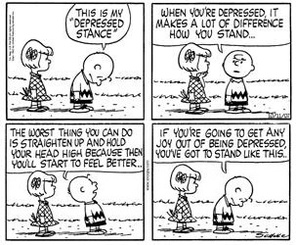
Rumination….. It’s a word I had never heard before in my life, have you? It sounds so silly! Surprisingly, it’s actually a word, and an important one too! After reading an article for my AP Psychology class (Lost in Thought: The Perils of Rumination by Susan Nolen-Hoeksema), I learned about rumination. I knew, right away, I had to write a blog about it!
Rumination is repetitively thinking about difficult situations and all their possible causes, consequences, and meanings without moving into problem solving. If you are wondering whether you are a ruminator, these are some questions ruminators usually think about:
“What did I do to deserve this?”
“Why do I have problems other people don’t have?”
“Why can’t I handle things better?”
I know I definitely did plenty of ruminating after I relapsed. You hit this phase in which you get stuck wondering about all of those same questions, which is fairly normal after a traumatic experience, such as the cancer diagnosis that rips your world apart.
Here’s the problem…. Ruminators are at a much higher risk of mental health problems, e.g., depression, and they are not able to move past the challenges they face. Rather, they get stuck in a rut and can’t seem to move on and figure out a way to get through the challenge.
Whether you were just diagnosed, or have been going through treatment for months already, you have probably found yourself feeling like life is unfair and asking, “Why me?” You have probably found yourself ruminating. However, I want to emphasize the importance of catching yourself when you do that. As I said above, dwelling on those thoughts and that kind of attitude can be dangerous. You have to pull yourself out of it while you can, so that you can face the challenges and move past them.
Here’s an easier way to look at it… I was at a fundraiser for Johns Hopkins Pediatric Oncology the other day, and a wonderful 15-year-old cancer patient gave a speech. She ended with the quote “You can’t change the cards life dealt you, but you can change how you play the game.” That’s exactly how you should try to think. Take time to accept the challenges you are facing, those terrible cards life dealt you. Then, stop worrying about them and think about how you can adjust your life accordingly. In a card game, terrible cards may give you a lower chance of winning, but the chance is still there. If you spend all your time moping around about how terrible your cards are, you definitely won’t win the game.
So, stop ruminating and start focusing on what you CAN do to work through your challenges. You will find this approach to be much more productive and it may lead you to a more positive outlook.
 RSS Feed
RSS Feed

